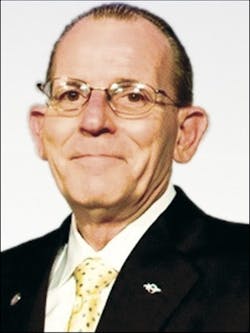George Witt has loved cars since he was two years old. After graduating from Nebraska Wesleyan University with a business degree, Witt tried a few different jobs before realizing he missed his life’s greatest passion—the automotive service industry. Determined to pursue his dream, Witt took on any and all jobs he could get his hands on in the industry. During the following 35 years, he worked as a mechanic, service advisor, service manager, and parts manager. Working his way up the ladder, Witt gained enough knowledge and experience to open up his own business. As the owner of George Witt Services, Inc., in Lincoln, Neb., for the past 14 years, the newly re-elected Chairman of the Automotive Management Institute’s (AMI’s) 2008-2009 board of trustees draws on decades of experience. Here, he addresses some of the toughest problems shop owners are currently facing and explains how he and other board members plan to shape the future of the industry.
What does the AMI Board of Trustees see as the most critical issue facing the auto collision industry right now, and how do you think you might address it?
The most important issue for AMI this year is to help collision and automotive businesses adapt to the shrinking pool of business and higher operating costs through marketing, becoming more efficient in our operations, a better understanding of business management, business law and accounting principles.
What were the main issues the AMI Board of Trustees addressed last year?
There is a growing need for management education for shop owners and managers in our industry if we are to evolve, survive and prosper today and in the future. Last year, we worked on finishing our specialized degree program, which is the culmination of over four years of work by our board. The program is the first of its kind for the automotive aftermarket with 10 newly defined curriculums and degrees for specific positions within a collision repair facility. Students with two years of collision repair experience may participate in the program and take focused management courses, either self-study or instructor-led, to enhance their skills and become more effective, productive and knowledgeable employees, managers and shop owners.
AMI is now offering online courses tailored to specific jobs within the collision industry. What prompted the development of these courses?
A well-run automotive service business must clearly communicate management ideas and principles to every single worker in the shop. When an owner or manager attends training classes and brings new knowledge back to the shop, he or she gets a natural “push back” from the workers. This makes it difficult to implement needed changes for improvement in the business. We recognized the need for every single worker to have management training in the areas that affect their jobs, so they could do their jobs better and be valuable allies of management rather than adversaries. Each job position has a specific list of classes and each has its own degree. Class credit is exam based, rather than attendance based.
Can you imagine how well a shop would run if each worker were an expert in all the management areas that affect their job? That’s a shop where the owner could take a vacation without worry.
What led to classes being offered online? Are they also offered in person?
We recognized a number of years ago that good management training was too difficult to get and too expensive if all you had was live training. We’ve set a goal to eventually have all training available on a home study basis. That way you can get the specific training you need at the time you need it rather than waiting years for it to be offered in a place you can afford to go. These classes will also be offered live, as well. Some are new, some are not: the main difference is our specialized degree classes must have specific content (spelled out in our curriculum) and have exams.
For shops that don’t invest in education, what kind of liability is that for their business? What difference can it make to a shop’s bottom line?
It will literally define who’s still in business and who’s not. It’s the difference between working your heart out for low wages and high stress levels and enjoying coming to work and making a decent living.
What do you see as the top three issues in the next five years for the collision repair business?
The three top issues will be customer service, working with the insurance industry and being top business people. In order to accomplish the first two, we must place our focus on being top business people. The vast majority of shop owners are undertrained in sound business management, basic knowledge of accounting and principles of business law. This has led to lower gross profits, poorly trained employees, inefficient procedures and no way to improve technology due to lack of capital. It’s extremely difficult to either deal with insurance companies or offer great customer service without the knowledge needed to be a great businessperson. Far too many shops are scrambling to get whatever dollars they can without due consideration whether those dollars represent any net bottom line profit. They think if the shop is full they’re doing well, and that’s not always the case.
What in this business could folks spend less time worrying about?
Micromanaging, or thinking you must have your fingers in everything that goes on in your shop. It’s time to transition, let your employees work without interference and focus your attention on becoming a true business manager.
What upcoming events or courses does AMI have planned for the next six months or so?
We’ll be putting on monthly webinars offering live training over the Internet. We’re working to get more training available for home-based study on DVD and, of course, we’re offering outstanding educational opportunities at the International Autobody Congress & Exposition (NACE), held November 6-8 in Las Vegas.




